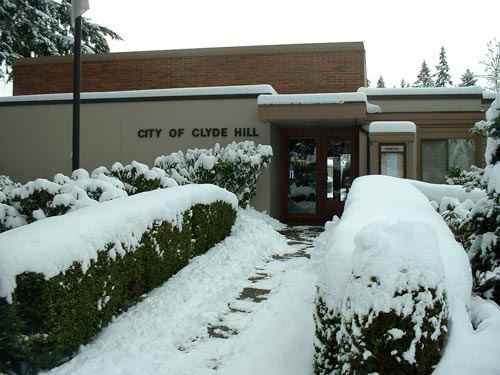State Legislation: HB 1110 and Other Bills
The Washington State Legislature is currently considering a number of bills that could significantly impact the character of Clyde Hill.
House Bill 1110 and its companion, Senate Bill 5190, seek to give Washington State the power to overturn local control of our zoning laws and allow the construction of up to six housing units per lot. One of the primary motivators of Clyde Hill's incorporation in 1953 was to maintain local control over planning and development and not become part of Bellevue. Neither bill considers our privacy, peaceful streets, and wooded neighborhoods. Nor does either bill provide any financial assistance to augment or improve infrastructure to accommodate the additional housing and occupants. Furthermore, neither bill allows the City to thoughtfully determine how/where to scale density. All lots in Clyde Hill would be subject to this new zoning.
House Bill 1245 would allow residential lots in Clyde Hill to be split into two residential lots. Similar to HB 1110 and SB 5190, this bill overturns the City’s control over its zoning and development regulations.
We strongly encourage all residents to review these bills using these links: HB 1110.pdf (wa.gov), SB 5190.pdf (wa.gov), and HB 1245-S.E.pdf (wa.gov) and then offer feedback to all three legislators (Kuderer, Slatter, Walen) using these links:
https://app.leg.wa.gov/pbc/bill/1110
https://app.leg.wa.gov/pbc/bill/5190
https://app.leg.wa.gov/pbc/bill/1245
These bills appear to be moving forward for consideration by both the House and Senate in the very near future despite opposition from small cities/towns like ours. Time is of the essence as there are coalitions forming to push this proposed legislation as a path to more affordable housing without considering the preferences and concerns of our residents, the unintended consequences of this blanket approach (one-size-fits-all communities), the destruction of local planning autonomy, and without regard to the real costs small cities must incur to support the dramatic increase in neighborhood density.




